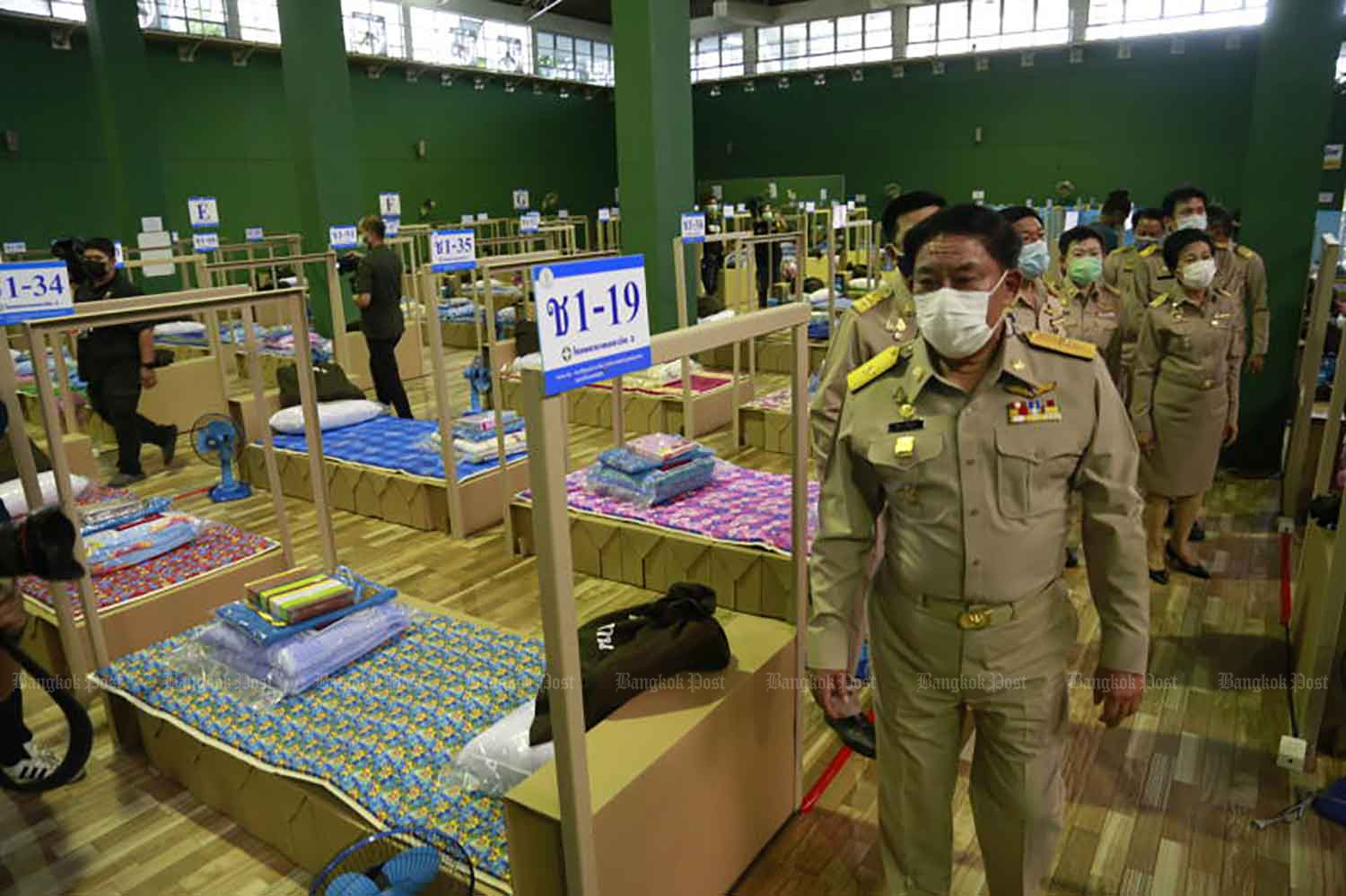
The Public Health Ministry on Tuesday raised concerns about City Hall's plan to treat less serious Covid-19 patients with the anti-viral drug Favipiravir and asked that the proposed treatment be first approved by experts.
The concern came after Bangkok governor Aswin Kwanmuang said on Monday that the Bangkok Metropolitan Administration (BMA) would begin treating new Covid-19 patients at its field hospitals with Favipiravir as soon as they arrived.
Field hospitals are designated for patients with few if any symptoms, who are in the "green" category.
Mr Aswin said those patients would be given 50 tablets of Favipiravir over a five-day course of treatment: 10 tablets per day for five days for each patient.
Dr Taweesilp Visanuyothin, spokesman for the Centre for Covid-19 Situation Administration (CCSA), said concerns about the BMA's proposed treatment were raised at the Public Health Ministry on Tuesday, especially over the possibility of patients being resistant to it.
He said administering Favipiravir needed to be conducted under the close supervision of doctors and the Department of Medical Services had now been asked to look into the matter.
Assoc Prof Nitipatana Chierakul, chief of Division of Respiratory Disease and Tuberculosis, Faculty of Medicine at Siriraj Hospital, posted his concerns on Facebook, saying he disagreed with the idea of giving the drug to all Covid-19 patients for a number of reasons.
Firstly, he feared this could lead to a short-term supply shortage and the drug not being available to those in greater need; secondly, Favipiravir was considered a "non-rational drug and could produce adverse effects in some patients; thirdly, Assoc Prof Nitipatana said use of Favipravir was still in its early stages and so far there was no clinical data to prove it could prevent lung inflammation or even reduce the severity of patients' symptoms.
Favipiravir, which has been shown to reduce mortality rates and prevent the onset of more serious symptoms, is being prescribed by doctors to Covid-19 patients at an early stage of lung inflammation.
Assoc Prof Nitipatana said Favipiravir had been approved for emergency use in the first wave but that due to limited supply it had only been prescribed to patients with severe lung inflammation.
One review of clinical data showed that not only was the drug safe to use but that it could reduce severe symptoms and thus save patients' lives. However, the drug is not used in western countries and there is no academic evidence to endorse its effectiveness, the doctor added.
Thailand's drug sourcing panel stockpiled Favipiravir for use in the second wave and only 20% of stocks was used to treat the patients at that time.
Since the third wave has erupted, however, it has been prescribed widely, almost depleting the stockpile.
Following Assoc Prof Nitipatana's warning, Pol Gen Aswin said on Tuesday that City Hall would hold a meeting with specialists today on the use of Favipiravir in the treatment of Covid-19 patients.
